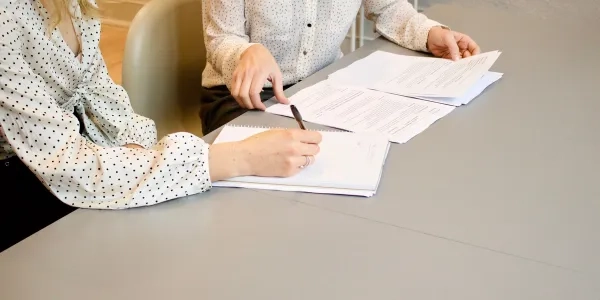Working life
Dealing with rejection from graduate jobs
22 Jun 2023, 13:24

Getting rejected for a job after an interview you felt went well or having job applications not make it to the interview stage does not mean there’s something wrong with you as a person. However, it’s worth reflecting on what you can learn from the experience to help you succeed next time, as constant rejection can be draining and disheartening
Response template | What to do
It’s natural to feel frustrated or disappointed after a rejection but keep in mind that this is not a personal attack or a reflection of your future prospects. Remember that:
-
Rejection doesn’t mean you did anything wrong. Even if you met the requirements and did well at the interview, the employer could only recruit one person, another candidate may have stood out more at the time or may have seemed like a better fit.
-
Rejection isn’t personal: The outcome of a graduate recruitment process isn’t about you as a person, it’s more of a snapshot of you according to how you demonstrated your competencies, values and behaviours on the day of the interview.
-
Everyone gets rejected at some stage: Even people who are at the top of their field have experienced rejection and setbacks in their lives. They got to where they are today because they didn’t give up.
-
Rejection means you’re still learning: The best way to improve your performance at interviews is to practice. Few people are naturally good at them from the beginning. Think of each one as practice for the next one.
-
Rejection doesn’t mean you’ll never work for that employer: You might not have been the right fit for that role at that time, or someone else who was a better fit might have applied. This does not mean the employer will never want you. You can reapply for a graduate programme the following year or ask to be considered for similar roles. Showing your enthusiasm for the company and maintaining a good relationship with the recruiter will help.
How to respond to a job rejection
Graduate recruiters will typically contact unsuccessful applicants by email. Most people do not respond but doing so, especially if the rejection is at the final stage of the recruitment process, will help you stand out in the mind of the recruiter as being courteous, mature and professional. It may help your chances if you apply for another job with the same employer in the future.
You might even secure a job on this occasion if the selected candidate changes their mind, they leave soon after starting the job or the employer has another vacancy in mind for which they think you could be a good fit.
A good response to a rejection email should be short but polite. Be sure to show gratitude for the opportunity, mention your disappointment at not being selected and ask to be considered for any similar positions in the future.
An email response to a rejection might look like this:
Dear [recruiter’s name],
Thank you for letting me know your decision. While I’m disappointed not to be able to work at [company], it was great to meet you and learn more about the role and the work [company name] does. If there is another role that you feel would be a better fit for my experience and skills, I would be interested in applying. I would be grateful if you could keep me in mind for any future opportunities.
I hope our paths cross again in the future, and I wish you and [company name] all the best.
Best wishes,
[Your name]
You can also use this as an opportunity to ask for feedback. This request can be included in the above email.
What to do after being rejected for a job
You might find it tempting to push forward with another batch of applications as soon as you receive the rejection or to overthink the situation and dwell on everything you said during the interview. Instead, set aside time to reflect and learn before moving on and applying for more jobs.
Here are some practical things you can do:
Evaluate:
Read the feedback given and think about whether this works for you. The opinions of recruiters are subjective, and you may disagree with what they have said. Different employers may have made conflicting observations. Bear in mind that an interview is only a snapshot and reflects how you performed one time not who you are.
Try to get a second opinion from people you are close to by asking friends and family whether they think the feedback is valid and something you should invest time working on. Be open to constructive feedback as other people may see something you can’t. Talking through your applications can also help you define your ambitions and work out what you really want to do. Doing some additional research may help you focus your effort on the type of roles that would best fit you.
Practise:
Once you’ve zeroed in on the parts of the recruitment process you need to work on, you can start taking steps to improve your performance. This could include practising psychometric tests or doing mock interviews. If you struggle with video interviews, try practicing speaking confidently into a webcam. If you feel that you are lacking certain skills that other candidates have, find ways to develop them so that you can better stand out in the future.
Apply:
Next time you apply for a job or attend an interview make sure to follow the advice you’ve picked up and talk about any new skills you’ve learned. This is a good way to ensure the best possible outcome.
gradireland Editorial advice
This describes editorially independent and impartial content, which has been written and edited by the gradireland content team. Any external contributors featuring in the article are in line with our non-advertorial policy, by which we mean that we do not promote one organisation over another.


